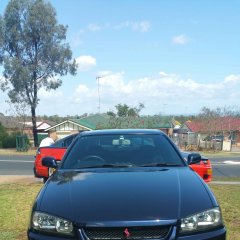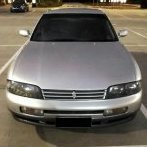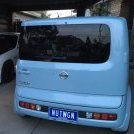Is the 350z any good?
Announcements
-
Similar Content
-
Latest Posts
-
Executive Committee roles: President - Andrew Collins Vice President - I’m happy to continue Secretary - John Richo Treasurer - Martin Sullivan
-
Hey I get it. Definitely sounds exciting, but not for me, there is almost no V10 or 12 that I really like. I don't like big engines with high cylinder count. V8s would probably be where I draw the line of "which engine would you use". Specifically an LS7 is a favorite of mine, or the 5.2 Voodoo by Ford.
-
But V12 Skyline. Like, I'm In! Stay Tuned in the USA are jamming a V12 into a Foxbody at the moment... Just the sound of V10 or V12 is worth that adventure!
-
To put it in perspective; there is just one tuner shop that sells a single turbo kit for the RB26, at least publicly in their shop. Maybe one or two others can offer you a setup if you inquire, but I am not sure. That turbo kit is 16k in parts alone (high quality ones, but still). By the time it's installed, tuned and legalized expect it to cost 25k+. And then you still didn't take into account for any special wishes. I can't imagine legalizing an LS swap for example to be any cheaper. And if you want to legally raise power output by more than 40% of the highest-powered OEM variant of any specific car you'd have to do stress testing on a race track for 2000km. Wildly out of perspective cost and effort wise, especially for just one vehicle. But if you got too much money, I guess you could do it.
-
Yeah, I understand that TÜV is a bitch, but.... cost is not an issue when talking about putting a massive NA (or possibly large + turbo'd) V engine into a Skyline. We do it because it is fun. If mine was a project car and not a daily, I'd be finding some massive engine to put in it. Possibly one of the Toyota V12s that they make into monsters in New Zealand. Engineering is not cheap and easy here either (although definitely easier and cheaper than in Der Vaterland). But anything is possible, and 7L is better than ~2.5L, by about 200%.
-







Recommended Posts
Create an account or sign in to comment
You need to be a member in order to leave a comment
Create an account
Sign up for a new account in our community. It's easy!
Register a new accountSign in
Already have an account? Sign in here.
Sign In Now